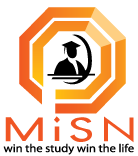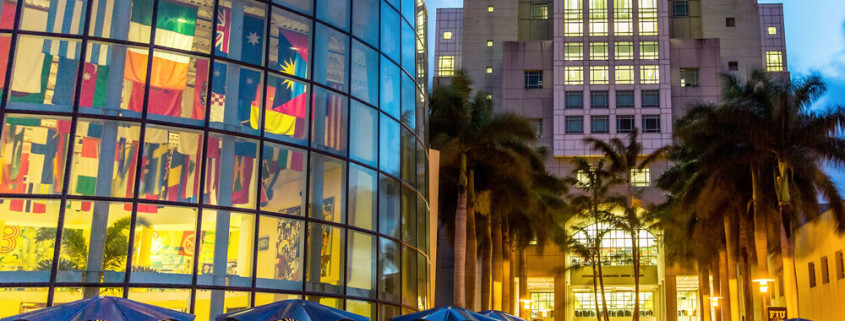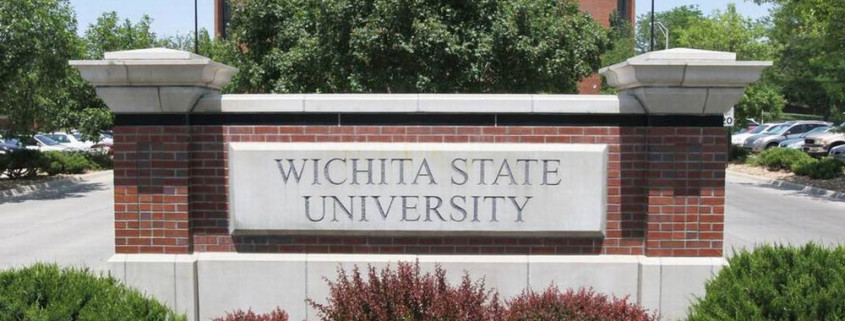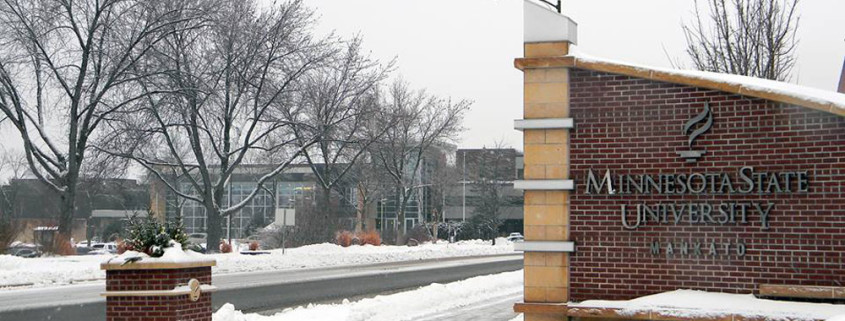The country of Eiffel Tower has A LOT TO OFFER YOU!
The gateway to Europe has an educational niche in a variety of areas and possesses outstanding institutions that are driving its long-term goals and agenda. The broader macro environment of France is a huge selling point for students choosing to educate themselves as millions around the world appreciate the beauty, history and culture France is so enriched by, as well as its artistic and intellectual heritage. France has consistently produced some of the best scientists, researchers, mathematicians and engineers, many of whom end up working in Global Enterprises and Corporations, both public and private influencing global power structures through their expert knowledge and intellect. Naturally,
Universities in France are predominantly driven by research and attract substantial funds to support longer-term objectives. Faculty is of an incredibly high standard too and students are given the opportunity to interact with high profile individuals from different sectors. If you are looking to study in France, read ahead to find out more or contact the intelligent advisor of Masco International Study Network.
WHY SHOULD YOU STUDY IN FRANCE ?
The “City of Light” brings to mind late night strolls along the moonlit Seine, endless epicurean delights, and all things arts and culture — from music and museums to cafes and cinema. But Paris, along with its fellow French cities, also shines is as a destination for international students — so much so that for the second straight year the city has claimed the top spot of the best cities to study. For those seeking a top-rate education while immersed in a vibrant and cultured setting, France offers incomparable joie de vivre. Here are the top reasons why you should enroll in France as an international student.
Wide range of Scholarships to go study in France: The cost of studying in France ranges dramatically depending on the institution: public universities offer pleasingly low tuition fees, while private institutions cost much more. Still, compared to countries like the U.S. and the U.K., the cost of attending one of France’s premiere institutes of higher education is a relative steal. Not to mention the wealth of scholarships available for international students, which makes France a realistic destination even for those on the tightest budgets.
One of the most renowned education systems in the world: The Guardian recently published a piece on France’s unique positioning within the international educational landscape. The country is in a unique predicament due to the international higher education market’s increasing focus on English-speaking coursework, not to mention its uniquely fragmented approach and deliberate lack of oversight by a central body. However, despite the country’s decentralized approach, some pivotal universal elements remain: an egalitarian imperative — along with accompanying funding opportunities — regarding the universal right to higher education; a shared belief in the importance of universities as research and knowledge centers in which students are encouraged to explore flexible cross-curriculum opportunities; and a commitment to the necessity of foreign students in fostering a dynamic and competitive higher educational system.
Paris ranked as best city to study: Beating out London, Singapore, Sydney, Zurich, Boston and many others, Paris was declared the best student city for a reason: from academic resources to bustling nightlife, it is an educational and cultural hub for students from across the globe.
Take classes in English, even in the heart of Paris: As a former lingua franca, France has been a holdout as many other countries have transitioned to English-speaking coursework. This seems likely to change soon as there is a strong push — not to mention a bill currently under consideration by the French parliament — to allow more courses to be taught in English. The bill’s proponents include some of France’s most prominent academics and scientists, who maintain that an inevitable loosening of the country’s policies about teaching languages will lead to an influx of international students and better strategic positioning for France.
You will learn French easily: Not that learning French is such a bad thing. Considered a fairly easy language to pick up because of its lexical similarity to English, a significant portion of French vocabulary can be understood by the English speaker; in fact, linguists believe that up to a third of modern English has been influenced by French. While advanced students may occasionally struggle with trickier topics, students of conversational French are likely to experience success.
Great career opportunities: Students with French degrees have a leading edge on the job hunt, thanks to a thriving network of partnerships between top companies and institutions of higher education. Furthermore, the French government recently declared employability as a French mandate.
FRENCH EDUCATION SYSTEM AT A GLANCE
Higher education in France is organized in three levels or grades which correspond to those of other European countries, facilitating international mobility: the Licence and Licence Professionnelle (bachelor’s degrees), and the Master’s and Doctorat degrees.[citation needed] The Licence and the Master are organized in semesters: 6 for the Licence and 4 for the Master.These levels of study include various “parcours” or paths based on UE (Unités d’Enseignement or Modules), each worth a defined number of European credits (ECTS); a student accumulates these credits, which are generally transferable between paths.A Licence is awarded once 180 ECTS have been obtained; a Master is awarded once 120 additional credits have been obtained.
Licence and master’s degrees are offered within specific domaines and carry a specific mention. Spécialités which are either research-oriented or professionally oriented during the second year of the Master. There are also Professional Licences whose objective is immediate job integration. It is possible to later return to school through continuing education or to validate professional experience (through VAE, Validation des Acquis de l’Expérience).
Higher education in France is divided between grandes écoles and public universities. Grandes écoles admit the graduates of the level Baccalauréat + 2 years of validated study (or sometimes directly after the Baccalauréat) whereas universities admit all graduates of the Baccalauréat.
A striking trait of French higher education, compared with other countries, is the small size and multiplicity of establishments, each specialized in a more or less broad spectrum of areas. A middle-sized French city, such as Grenoble or Nancy, may have 2 or 3 universities (focused on science or sociological studies), and also a number of engineering and other specialized higher education establishments. In Paris and its suburbs there are 13 universities, none of which is specialized in one area or another, and a large number of smaller institutions which are highly specialised.
It is not uncommon for graduate teaching programmes (master’s degrees, the course part of PhD programmes etc.) to be operated in common by several institutions, allowing the institutions to present a larger variety of courses.
In engineering schools and the professional degrees of universities, a large share of the teaching staff is often made up of non-permanent professors; instead, part-time professors are hired to teach one only specific subject. These part-time professors are generally hired from neighbouring universities, research institutes, or industries.
Another original feature of the French higher education system is that a large share of the scientific research is carried out by research establishments such as CNRS or INSERM, which are not formally part of the universities. However, in most cases, the research units of those establishments are located inside universities (or other higher education establishments), and jointly operated by the research establishment and the university.
BASIC ENTRY REQUIREMENTS FOR INTERNATIONAL STUDENTS
ACADEMIC REQUIREMENTS:
Undergraduate Admission: HSC or GCE “A” Level (a minimum of three principal passes in the appropriate subjects), the Australian matriculation or International Baccalaureate, Canadian Pre-University for Matriculation (OSSD). Minimum requirements of marks (CGPA) differ based on institutions and study programs.
Graduate Admission: A four/three-year undergraduate (Hons) degree programs (or equivalent) which is recognized in credential issuing country as well as in France. Student with pre-master’s program from recognized institution is also eligible for admission in master’s program. Minimum requirements of marks (CGPA) differ based on institutions and study programs. Student who has completed master’s program with required results and other supporting academic achievements can apply for admission in doctoral admission.
LANGUAGE PROFICIENCY REQUIREMENTS:
Acceptable proof of proficiency in English such as TOEFL or IELTS. The required English proficiency test scores vary from one institution to another based on students admission level. Students, who’s medium of instructions is in English at Previous institutions can be exempted from language proficiency test results requirements.
TEST SCORE REQUIREMENTS:
Generally no test score required for study in France. But scores are advantages if you have any.
SAT is not mandatory but considered as advantage to get admission in some highly ranked institutions for undergraduate programs.
GRE (non-business) / GMAT (for MBA/other business related field) is typically an advantage (not mandatory) for entry into master and doctoral programs in highly ranked institutions.
BASIC DOCUMENT REQUIREMENTS FOR VISA APPLICATION
ADMISSION RELATED REQUIREMENTS:
- A letter of Acceptance (Confirmation of Admission)
- All educational certificates & Transcripts (All documents should be translated to English if required with original).
- Confirmation letter of any scholarship, grant, teaching or research assistantship including name of the providing institution or organization, awarded amount per semester or year and duration.
- All other supporting academic & Professional documents that you have provided to your institution for admission/Scholarship/credit transfer.
FINANCING/SPONSOR/OTHER DOCUMENT REQUIREMENTS:
- A Valid international passport
- Two duly filled up copies of the visa application form
- Two passport size photographs.
- Booking (not purchase) of a flight ticket.
- Visa application fee (can be paid in cash and Visa application fee is waived for recipients of French government, European Union, or foreign government scholarships).
- Certificate of health insurance for the full duration of your stay (provided either by the school / university in France or by a private company accepted by this Embassy). Students who are under 28 on 1 October and enrolled in a recognized educational institution for a program of at least 3 months are automatically enrolled in the student social security scheme.
- Birth Registration Certificate.
- Updated Resume / Curriculum vitae.
- Bank account statement of the person who will pay the tuition fees and the living expenses in France (either yourself, your parents, or another guarantor).
- Housing Booking certificate. (If you choose to reside with a relative, attestation of residence issued by the town council in France)
- Affidavit of financial support from sponsor and Birth certificate proving the filiation with the sponsor (if any)
- Proof of payment of the tuition fees (if partial or full payment has already been made).
- French and/or English language certificates (Alliance française certificates, IELTS, TOEFL).
- Training certificates, if relevant.
- Employment certificates, if relevant.
| BOOK AN EVENT PLACE |
|---|
| SIGN UP FOR SCHOLARSHIP |
| CHECK APPLICATION STATUS |
| REQUEST AN ADVISING POST |
| SCHEDULE FREE COUNSELING |
| SCHEDULE PSYCHOMETRIC TEST |
| REQUEST PERSONALISED INFORMATION |










